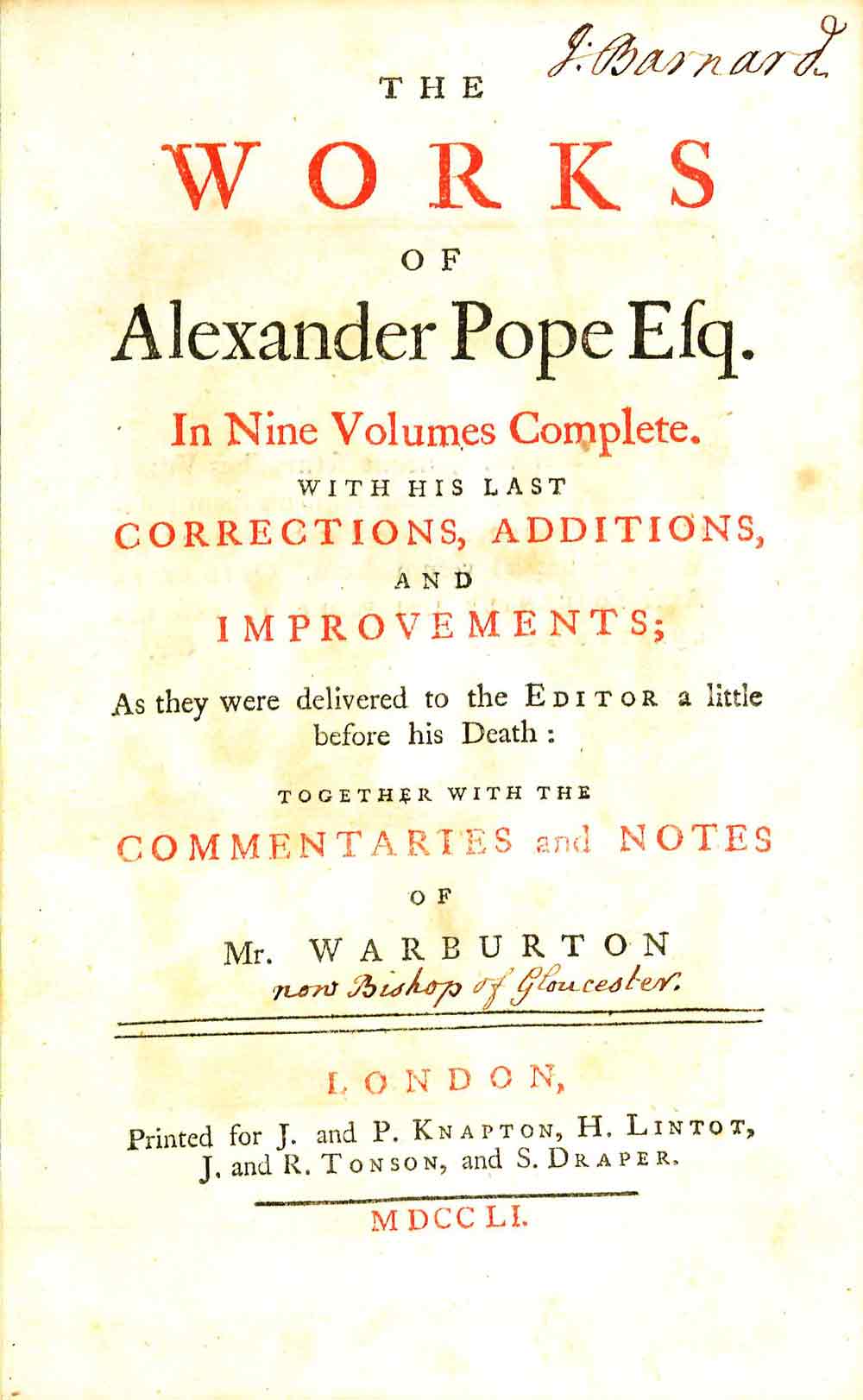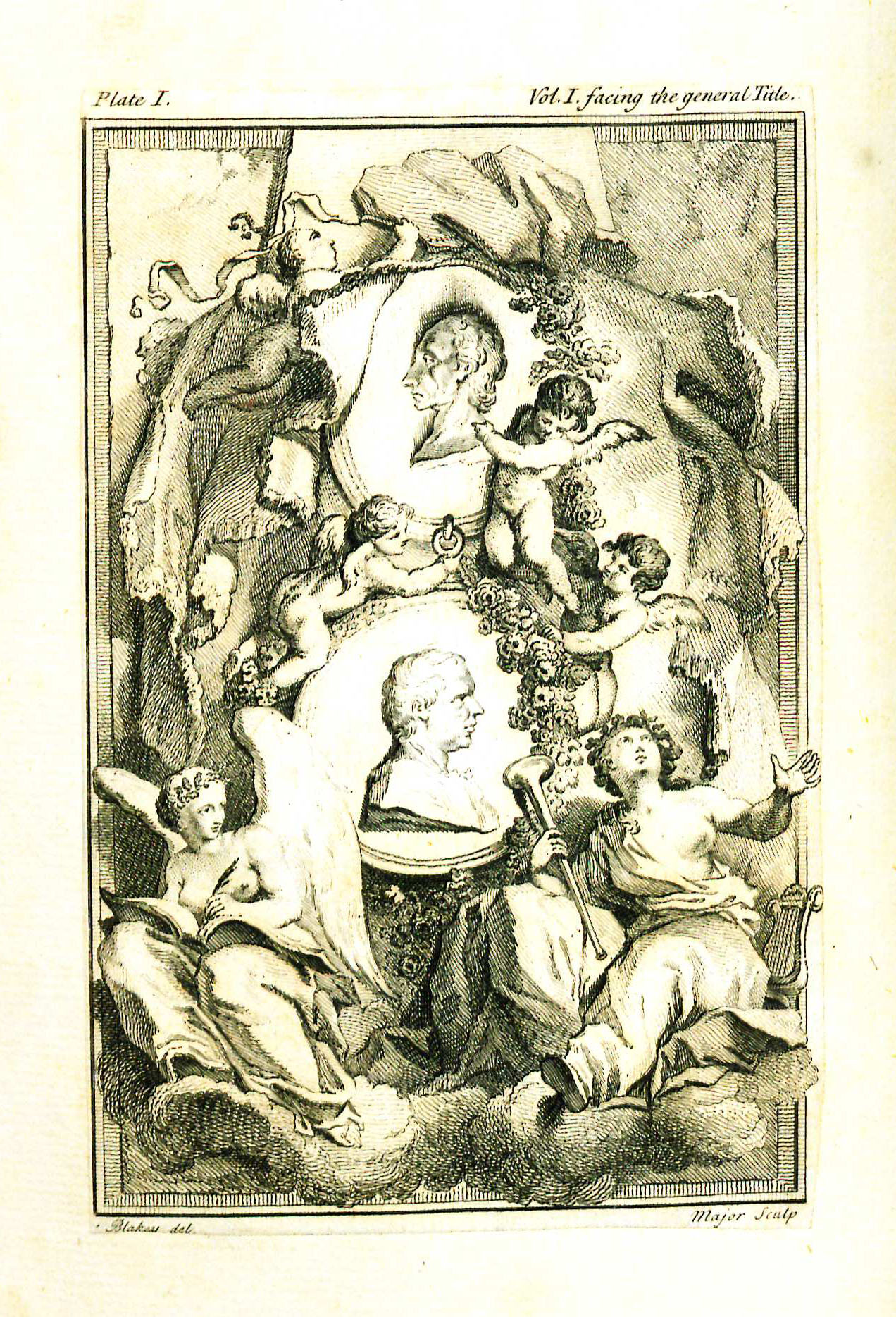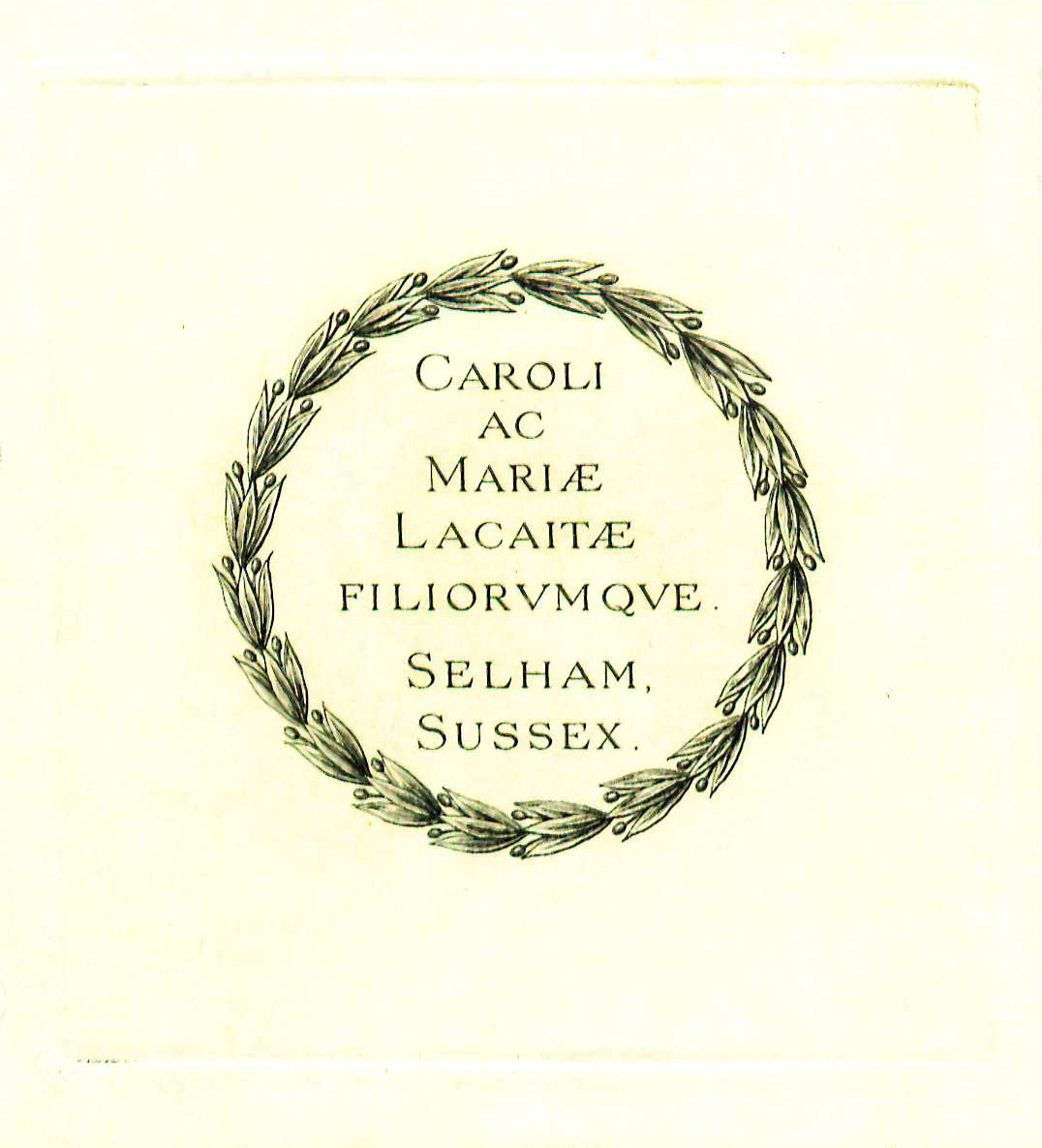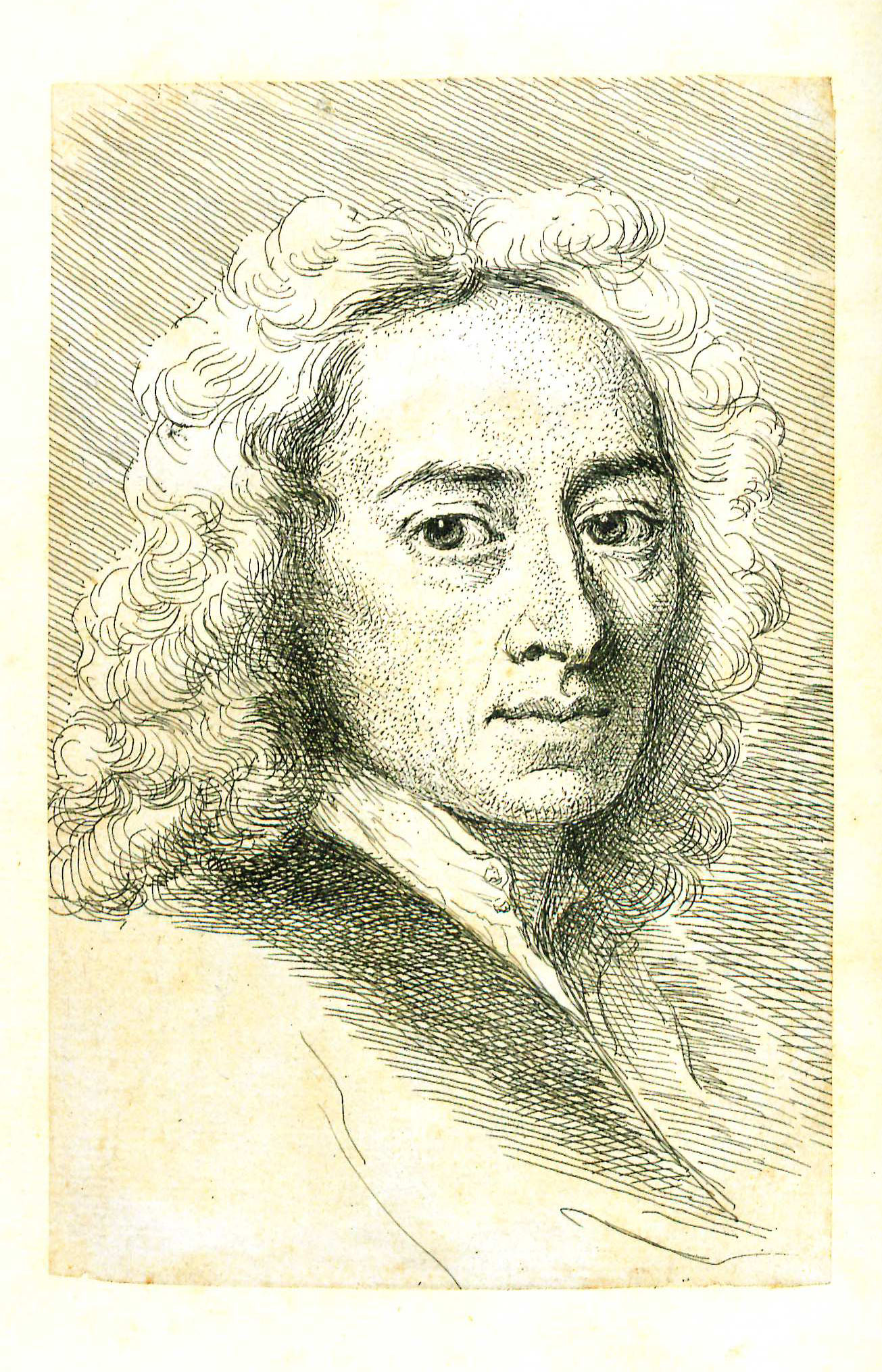The Works of Alexander Pope Esq. in Nine Volumes Complete
by Alexander Pope
| The Works of Alexander Pope | |
|
Title page from The Works of Alexander Pope, volume one, George Wythe Collection, Wolf Law Library, College of William & Mary. | |
| Author | Alexander Pope |
| Editor | William Warburton |
| Published | London: Printed for J. and P. Knapton {etc.} |
| Date | 1751 |
| Language | English |
| Volumes | 9 volume set |
| Desc. | 8vo (22 cm.) |
| Location | Shelf M-3 |
Alexander Pope (1688 – 1744) was a poet famous for his moral satires and mock epics, as well as his use of the heroic couplet.[1] Pope's professional opportunities were limited because of his Catholic faith and poor health throughout his life.[2]
Pope began his foray into pastoral poetry with his first major poem, Pastorals (1705). He explored the intellectual and emotional reach of poetry within formal composition rules, satirizing the poet's dedication to these rules in his famous poem An Essay on Criticism (1711). In 1712 Pope started to write mock epic poetry with the Rape of the Lock, which he followed with a famous verse translation of Homer's Iliad, which took six years to complete.
During the 1720s, Pope published multiple versions of a mock heroic the Dunciads, cementing his reputation as a satirist.[3] However, his poem An Essay on Man (1734-35) marked a move away from satire back to the poetic essay.[4] He continued to write poetic epistles, as well as the Books of Horace, until his death in 1744.[5]
The Works of Alexander Pope Esq. In Nine Volumes Complete was published in 1751, and became the primary edition of Pope’s works.[6]
Evidence for Inclusion in Wythe's Library
Listed in the Jefferson Inventory of Wythe's Library as Pope's works. 9.v. 8vo. and given by Thomas Jefferson to his daughter Martha. The precise edition of the set owned by Wythe is unknown. George Wythe's Library[7] on LibraryThing indicates as much, adding "Numerous nine-volume editions in octavo were published, the first at London in 1751." The Brown Bibliography[8] lists the first edition (1750-1751) published in London, and this was the edition purchased by the Wolf Law Library.
Description of the Wolf Law Library's copy
Bound in nineteenth century hard-grained morocco, spines and edges gilt, with silk markers in each volume. Ownership inscription in each volume of J. Barnard; bookplates of Charles and Mary Lacaita on each front pastedown. Purchased from Christopher Edwards.
Images of the library's copy of this book are available on Flickr. View the record for this book in William & Mary's online catalog.



